The week the global vaccines race got ugly
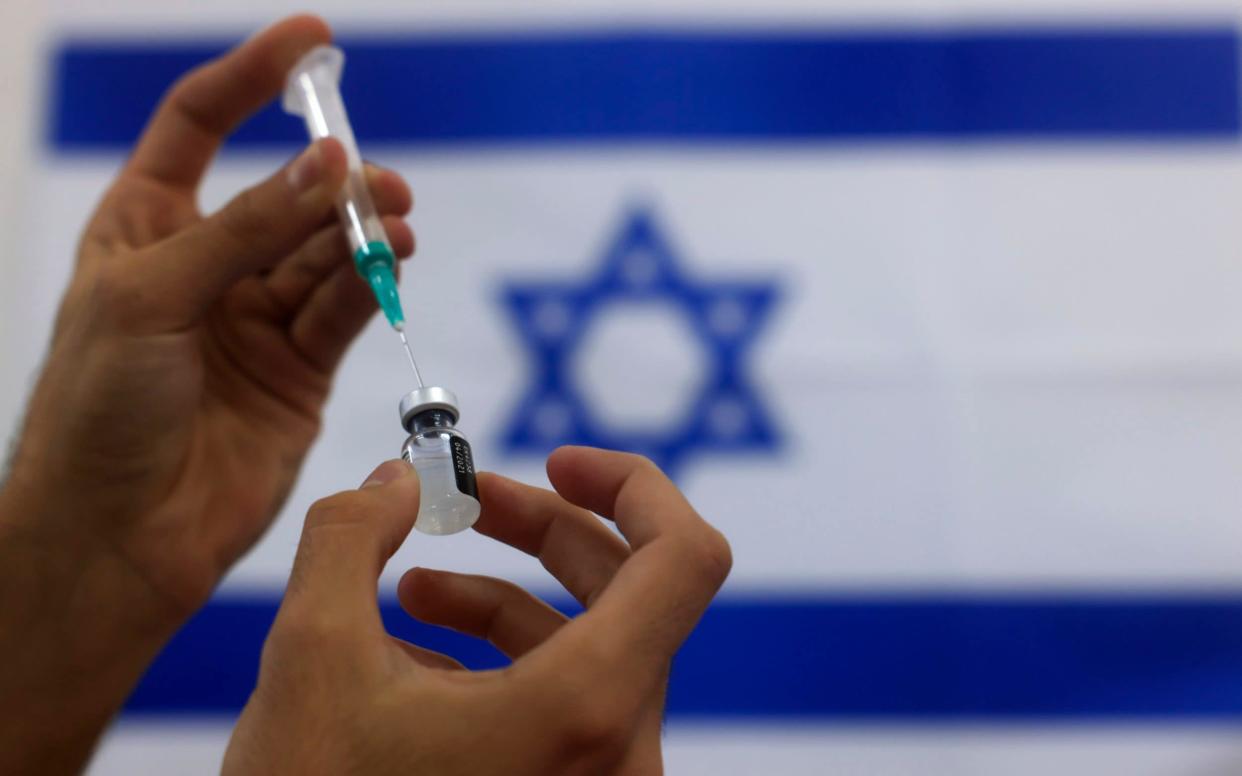
Officially, it is not a race, nor is there any prize for coming first. As Covid 19 vaccine roll-outs finally get underway around the planet, world leaders have loftily insisted that all that really matters is the safety of humankind.
But while it may be the turning point in the fight against the virus, roll-out time also presents politicians with another grim reality of pandemic politics: namely, are other countries vaccinating faster than us?
In the past month, Britain, America and dozens of other nations have begun their long-awaited vaccination programmes, amid national fanfare. But as health ministries pump out statistics on how many arms have been jabbed, a "league table" has gradually formed, with certain countries far outstripping others. It has led to celebrations in some nations - and excuses, finger-pointing and mudslinging in others...
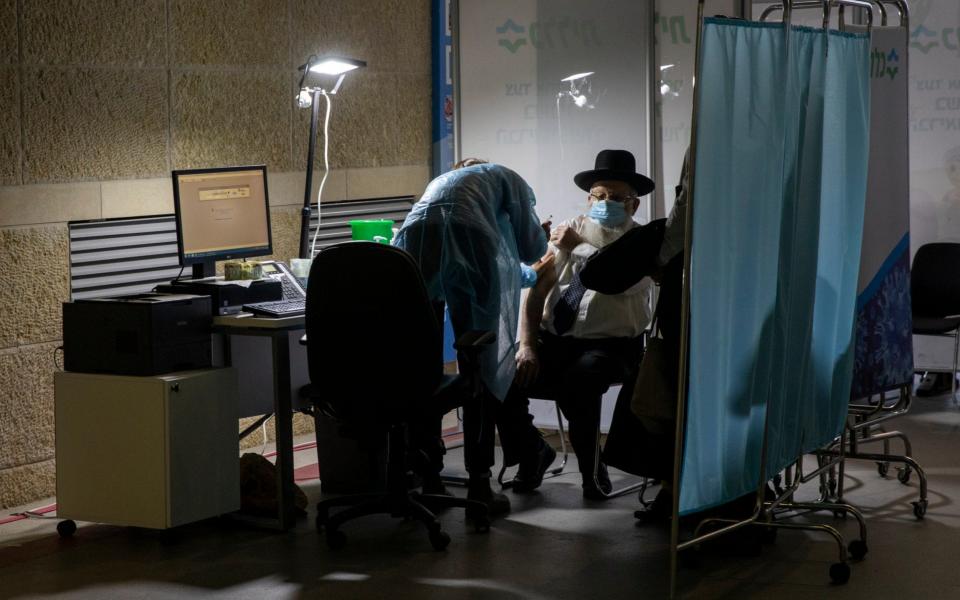
AND THE 'WINNER' IS...
Currently top of the vaccination league is Israel, which last weekend became the first country in the world to have treated 10 per cent of its population.
Since then, it has surged to 17.5 per cent, with nearly 1.6 million of the country's 8.9 million citizens treated. It is a rate that few other countries are anywhere close to achieving: Britain and the US, for example, are still only at just over two per cent of their populations.
Experts attribute Israel's success to its highly-digitised health service and relatively small population, who are also well-drilled in crisis response. Not surprisingly, Prime Minister Benjamin Netanyahu has basked in reflected glory, describing his country as "a world champion in vaccinations."
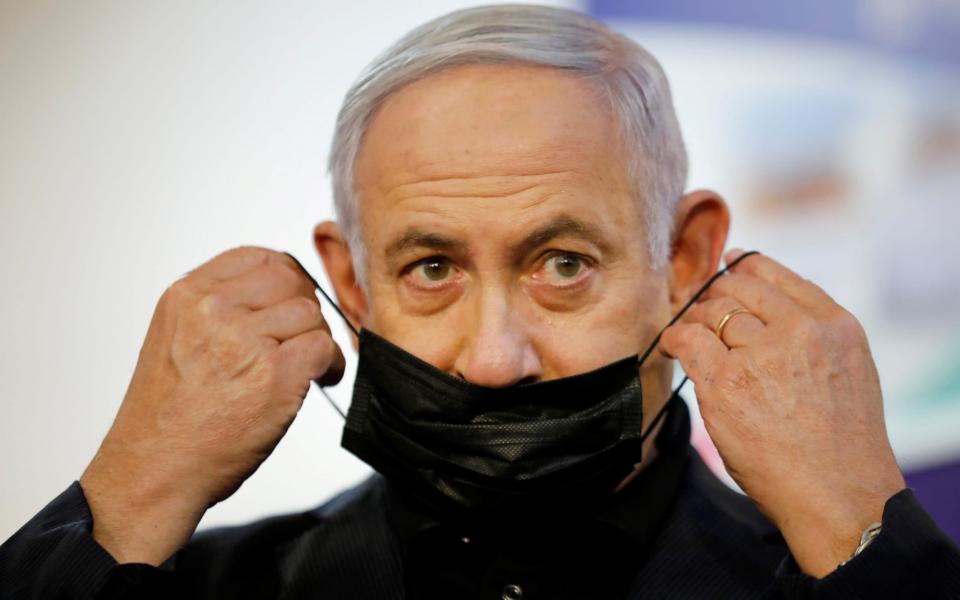
NOT SO BAD AFTER ALL?
For all the criticism of Boris Johnson and Donald Trump's response to Covid, both Britain and America are near the top in the league in terms of sheer numbers of jabs dished out. America's total of 7 million jabs since December 14 is the highest of any country. Second comes China, which has done 4.5 million, but began rolling out its vaccine much earlier in September, using a vaccine restricted to frontline workers.
The UK then comes fourth after Israel, on nearly 1.5 million. That puts it ahead of the European Union's leader, Germany, which is on 476,000. Trailing spectacularly behind, meanwhile, is France, where the tally thus far of just 80,000 has already become a national scandal.
Already, those who are lagging behind slightly are finding themselves on the defensive. The Australian prime minister, Scott Morrison, accused Britain last week of "cutting corners" on safety standards - just days before then announcing that he would bring Australia's vaccine roll-out program forward from March to February.
And in Wales, which has vaccinated proportionately fewer people than the rest of the UK, First Minister Mark Drakeford insisted on Friday that it was "not a competition".
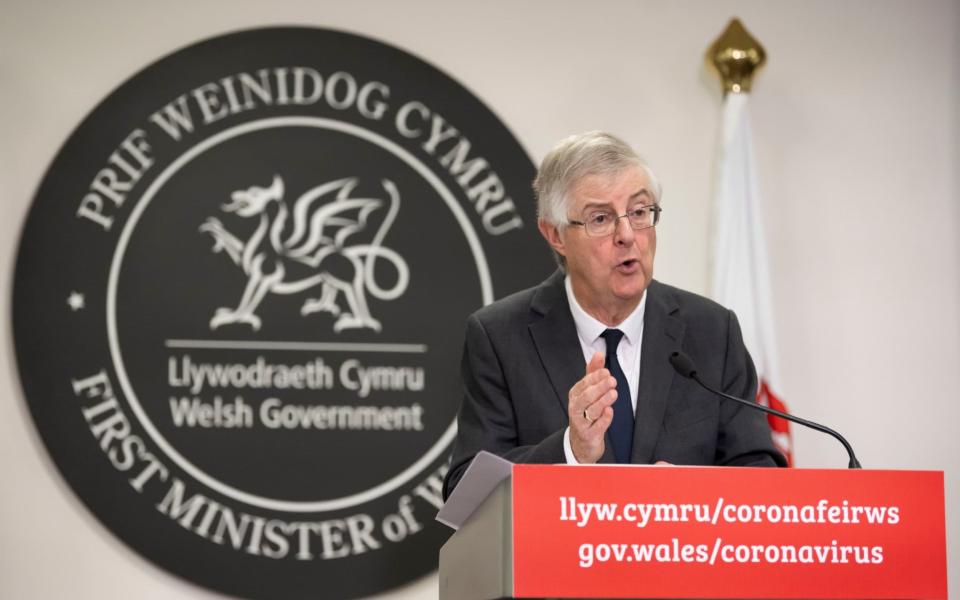
BUT THEY HAD A HEAD START!
While Britain's league performance may cheer Brexiteers, European nations have been quick to point out that its lead over the Continent is partly down to its decision to grant early approval of the Pfizer/BioNTech vaccine on December 2.
That was well ahead of the EU's medical regulator, which did not authorise it until December 21. The delay was partly to ensure equable supplies to all member states, in what EU Commission president Ursula von der Leyen described as a sign of "EU unity".
Yet despite an EU spokesman insisting once again that it was "not a competition", the lag left some Europeans unimpressed. In Germany, there was bafflement that a vaccine developed on home soil - BioNTech is a German firm - was withheld locally while being dished out in Britain.
“The world is celebrating the BioNTech vaccine developed in Germany," fumed the tabloid Bild newspaper. "Yet Britain, Canada and the USA have started vaccinating - and we are standing and gawping.”
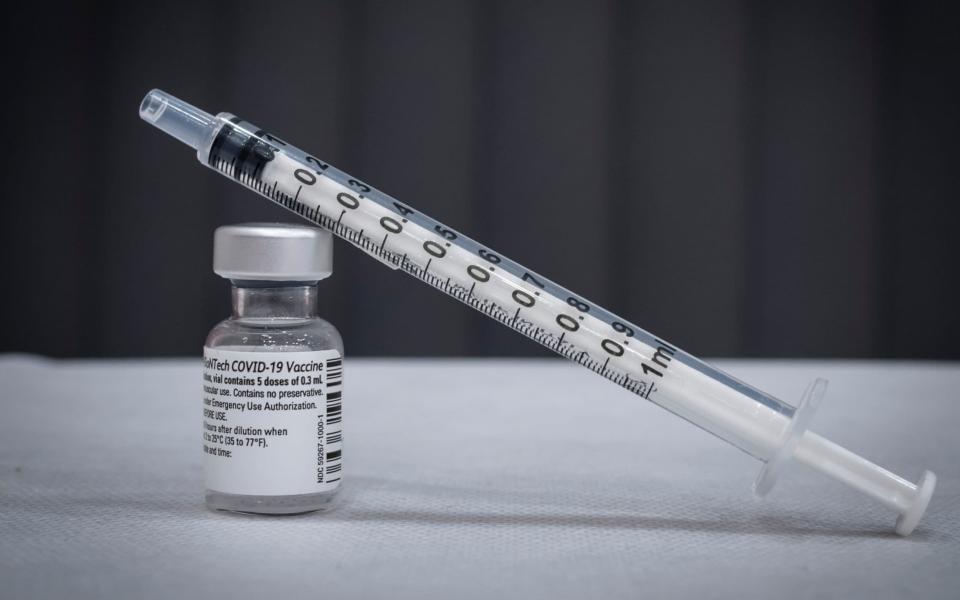
BLAME THE "UNBELIEVERS"
While Germans can at least blame EU regulators, the league table has forced other European nations to acknowledge shortcomings. France, in particular, has admitted "unjustified tardiness" after just 516 people were vaccinated in the first week of the French program from Dec 27.
Despite being the birthplace of Louis Pasteur, France is notoriously vaccine-sceptic: some 46 per cent of French adults say they would refuse to receive a Covid-19 vaccine, compared to just 21 per cent of Britons. So instead of setting up big vaccination drop-in centres, the French strategy has relied mainly on GPs surgeries, where doctors can be on hand to offer reassurance. But that has simply slowed things even more, according to Paris-based psychologist Marie-Estelle Dupont.
“The government scored an own goal in thinking that going slowly would reassure sceptics," she told France's LCI TV. "In fact it only worsened their sense of distrust."
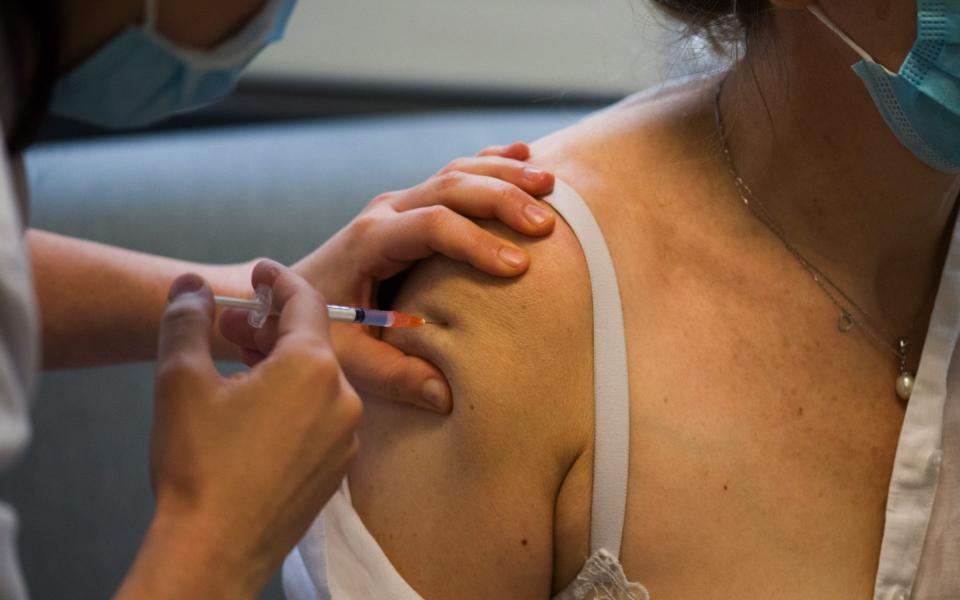
"VILLAGE IDIOTS”
Even more embarrassed are the Dutch, a pragmatic, well-organised nation who might normally be vying with the Israelis for top in the league. Instead, they only began rolling out their vaccine programme on Wednesday - ten days after the rest of Europe. Health officials have blamed the delays partly on having to upgrade their sophisticated IT system, which has proved ill-suited to radical shake-ups. Meanwhile, the Dutch health minister, Hugo de Jonge, has said he is "prioritising safety", and that - yet again - it is "not a competition".
But not many Dutch are buying into that. Last week, the main opposition leader, Geert Wilders, said the Netherlands looked like “the village idiot of Europe.” And Mark Rutte, the prime minister, told parliament: “I’m very disappointed that we are two weeks behind other countries."
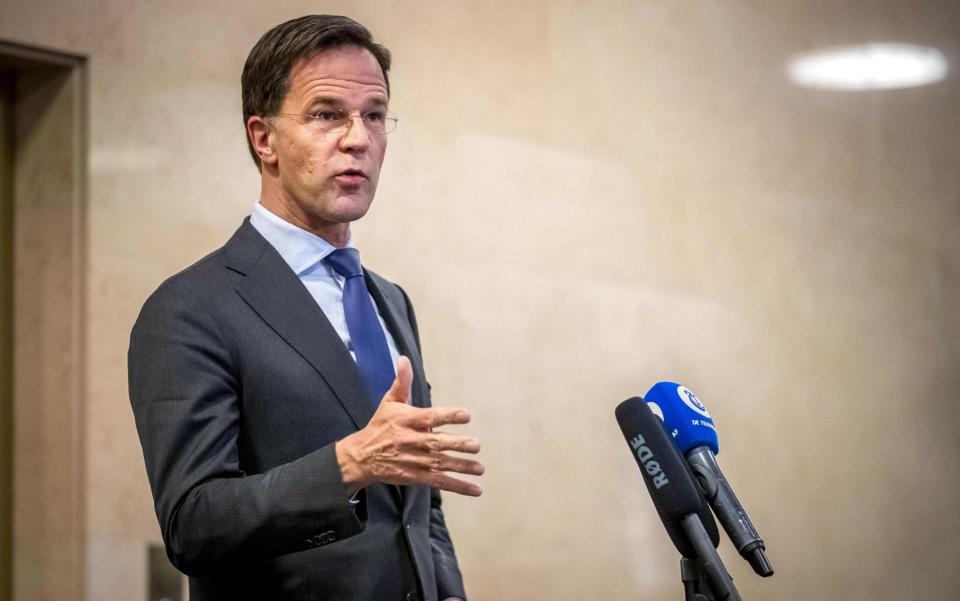
"DODGY VACCINES"
Last week, Belgium's deputy prime minister, Petra De Sutter, accused Britain, Israel, Russia and China of cutting safety measures to get ahead in the league table. They were, she said, "using vaccines that do not have the same standard as the ones we use”. Britain retorted that it was using the same vaccines as the EU, and had merely approved them quicker.
But might she have a point about Russia’s Sputnik V vaccine, or China's Sinopharm? Both jabs have been rolled in their respective countries since the summer, with Vladimir Putin's own daughter receiving Sputnik V in August. This is despite not finishing final clinical trials, and despite doubts in the West about the transparency of the clinical data. Yet so far, neither vaccine appears to have caused any major calamities.
Sputnik is now also being rolled out in Argentina, Belarus, and Bolivia, while Sinopharm is being used in the United Arab Emirates and Bahrain. Last month, British drugmaker AstraZeneca also said it would start trials to blend its own vaccine with Sputnik V, aiming to emulate the latter's higher effectiveness rate. That alone was seen as an endorsement of the Russian product.
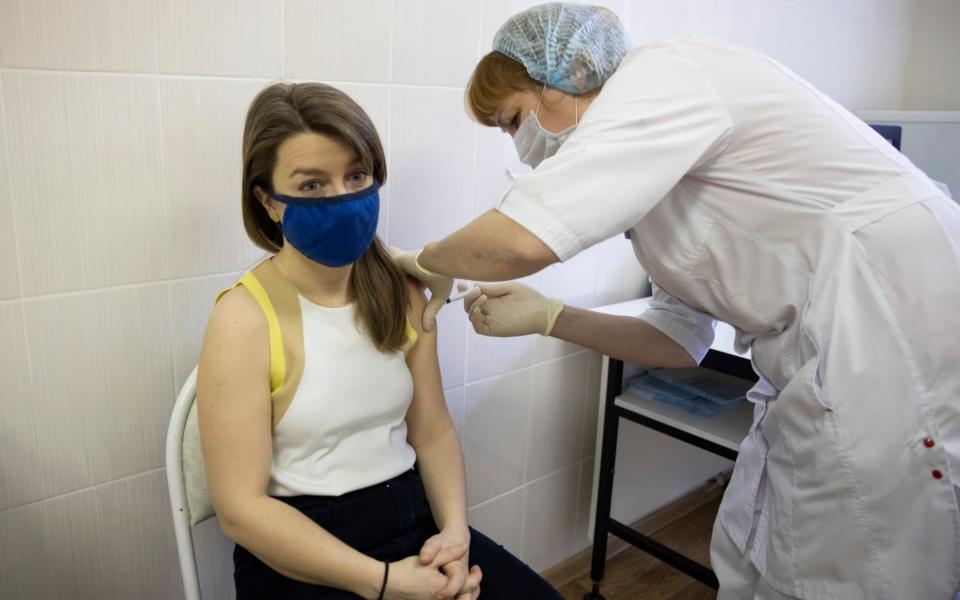
WHAT ABOUT THE POOR?
Of the 10 billion vaccine doses pre-ordered worldwide, half have been snapped up by high-income countries that account for just one-eighth of the world's 7.5bn people. Thanks to the global Covax programme - co-led by the World Health Organisation's to ensure “fair and equitable access” - 1.3bn doses have already been earmarked for 92 low and middle-income countries this year.
But some WHO officials fear that some poorer nations may still be waiting as late as 2024. And "vaccine nationalism" - whereby governments put their own people first - may play a part. Last week, India's Serum Institute, a pharmaceutical giant that has the main Covax manufacturing contract, was forced to deny reports that the government was insisting that it prioritised Indian nationals.
"Vaccine nationalism will continue and will be based on who can pay, even though it goes against every principle of a global health system," said Dr Clare Wenham, assistant professor in global health policy at the London School of Economics. "The gap may, though, get covered by new vaccines that eventually become available for non-high income markets."
Yet everyone, rich and poor, has an interest in seeing the whole world get jabbed. For if large populations are left untreated, the virus will never go away, and could even mutate into more dangerous, drug-resistant strains. Competitive or not, the "league table" is a race where everyone must cross the finish line - otherwise, there will be no winners at all.
Read more: How the super rich are getting desperate to access the Covid vaccine

